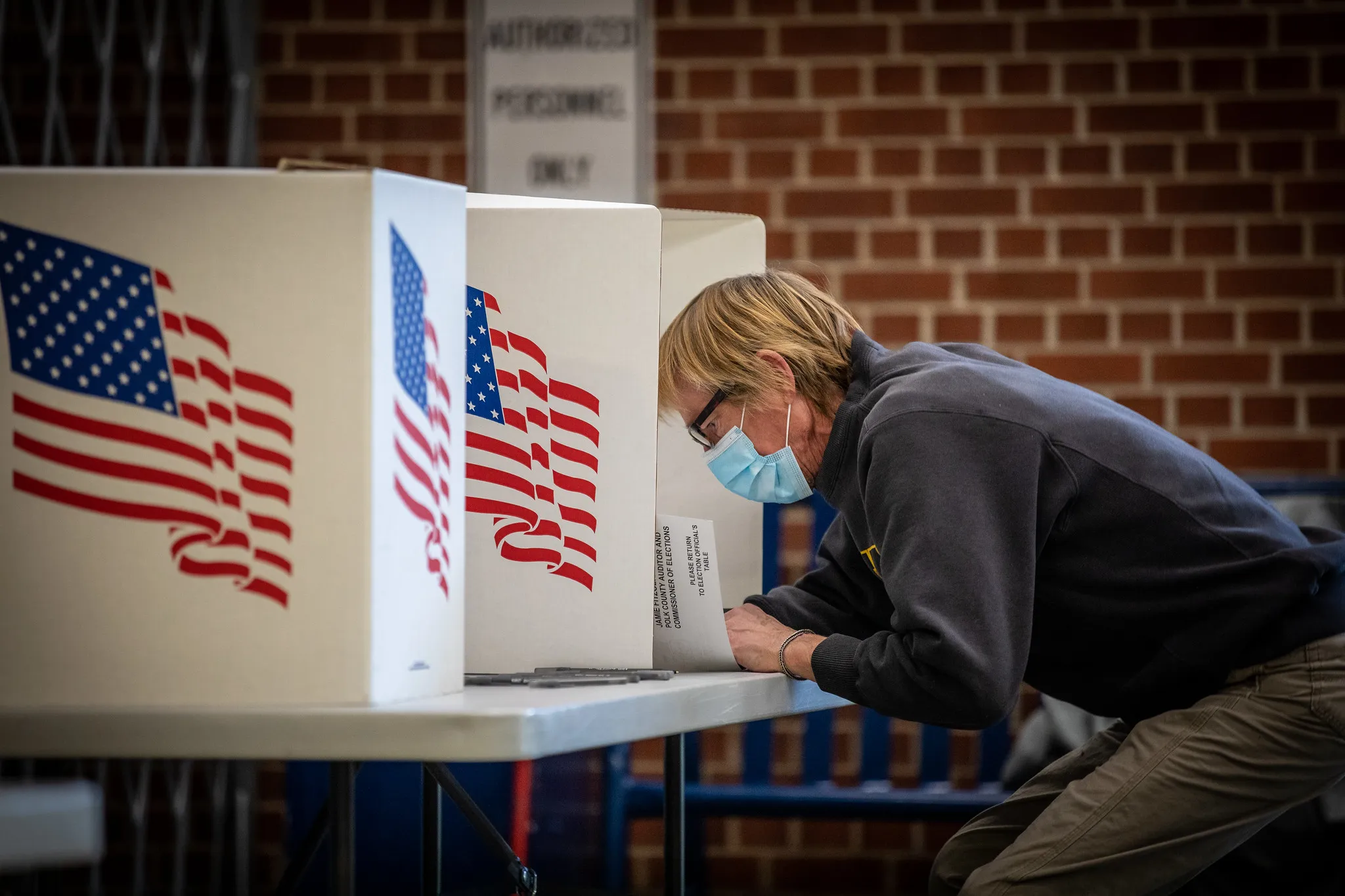Explainer: What constitutes a clean or credible election, and how should the US mid-terms be evaluated?

On 8 November 2022, the United States will hold mid-term elections for 470 seats in Congress and thousands of state and local offices. In the USA and elsewhere, it is increasingly common for candidates and their supporters to call elections and their results into question, even when there is no evidence of malfeasance. But what makes an election “clean”, and is a “clean” election by definition “credible” by some impartial standard? As democratic institutions around the world suffer from a crisis of public legitimacy, these questions are of vital public interest.
What is a “clean election”?
A clean election is one in which rules are scrupulously followed, and the outcome is not influenced by improper or illegal actions. Clean elections are roughly synonymous with “free and fair” elections, but there has been an international trend away from the “free and fair” terminology. There is no consensus, however, on what is considered “clean.”
At International IDEA, our Global State of Democracy Indices assess clean elections using six indicators which measure:
-
election management body (EMB) autonomy and capacity;
-
government intimidation of the opposition;
-
degree of party competition; and
-
occurrence of intentional irregularities and fraud.
What is a “credible election”?
Assessments of what constitutes a credible election are often broader than those for a clean election. A minimal point of agreement is that any assessments must consider the entire election cycle. A credible electoral process reflects respect for and legitimacy of each phase of the cycle:
Criteria for a credible election vary by country and by evaluator. For example, some may include an assessment of the inclusivity of the voter registration process. If government-issued IDs are necessary for registration but if certain minority groups face systematic obstacles in attaining such IDs, it may impact the credibility of the electoral cycle.
Almost every election has some aspects that fall short of the ideal. Observers vary in the weight they assign to problems, and sometimes vary in their overall assessment of the credibility of an election.
Who determines the credibility of elections?
The final word on the credibility of an election lies with the voters in that jurisdiction, who require thorough and reliable information to make their assessments.
Impartial election observation missions can play a key role in providing this information. In 2005, the United Nations Secretariat, International IDEA, and 21 other organizations agreed to a set of principles and a code of conduct for election observation. But observation is also done by civil society, media, and citizen monitors/observers. The judgements of international election observers are a core contribution to the public understanding of credibility, but citizens can and have rejected the opinions of observers in the past.
What are some specific risks to clean and credible elections in the USA this year?
A climate of uncertainty, disinformation and increased violence has strained American political culture since 2020. This climate has impacted elections specifically in three ways:
-
Election denial
The 2020 American elections were widely judged to be clean; multiple investigations did not uncover any evidence of fraud. Yet a widespread and disproven belief on the American right maintains that the 2020 elections were “stolen” from former President Donald Trump. Sixty per cent of Americans will have at least one candidate who supports this false claim on their ballot this year. Adherents to this theory in and out of government have engaged in harassment and surveillance of both polling places and electoral management officials, threatening the capacity of states to conduct the current election.
The baseless nature of these claims does not mean that American elections are free from credibility-threatening issues. However, policing electoral fraud is the leading justification for electoral laws and regulations that instead restrict and discourage eligible voters from participating in the election.
-
Voter suppression
There is a proliferation of laws and judicial decisions that restrict the right to vote, discourage eligible voters from participating, open new avenues for undue financial influence, and decrease the exercise of equal control over public decisionmakers. In the USA, the latter primarily occurs through drawing electoral districts to intentionally disadvantage one party or group, commonly known as ‘gerrymandering.’ Gerrymandering on racial grounds is illegal under the 1965 Voting Rights Act (VRA). The current Supreme Court has repeatedly weakened the protections of the VRA, most notably in its 2019 ruling Rucho v. Common Cause and a 2022 procedural decision that allowed Alabama to contest the current election with a map a lower court held was the product of intentional racial gerrymandering.
-
Money in politics
If not effectively regulated, money can undermine the integrity of political processes and institutions and jeopardize the credibility of elections. Spending on the 2022 election will surpass USD 16.7 billion. The ability of wealthy individuals to shape political priorities, establish corrupt relationships with candidates, or pay bribes without running afoul of campaign finance regulations has steadily increased since the 2010 Supreme Court decision Citizens United v. FEC overturned century-old campaign finance regulations. Successive rulings have expanded the role of money in politics, leading Justice Elena Kagan to warn in a recent dissent: “[d]emocracy works only if the people have faith in those who govern … and the people cannot have faith in representatives who trade official acts for financial gain.”
What can be done to boost clean, credible elections?
Credible elections are built on a fundamental societal agreement (including all political actors) that the procedures matter, and that losses are part of the process. When voters and parties view their policy goals as being more important than the principles of democracy, elections suffer.
Improving electoral credibility therefore requires a recommitment to democracy, understood as popular control of decision-making and decision makers, and equality in the exercise of that control. This is unlikely to be a straightforward or uncontested process, as it inherently requires actors who benefit from democratic shortcomings to lose some of their power. Electoral processes need to minimize the manipulating power of money, disinformation, and partisan interests, ensure that all voters can vote, and that those votes count and count equally.






